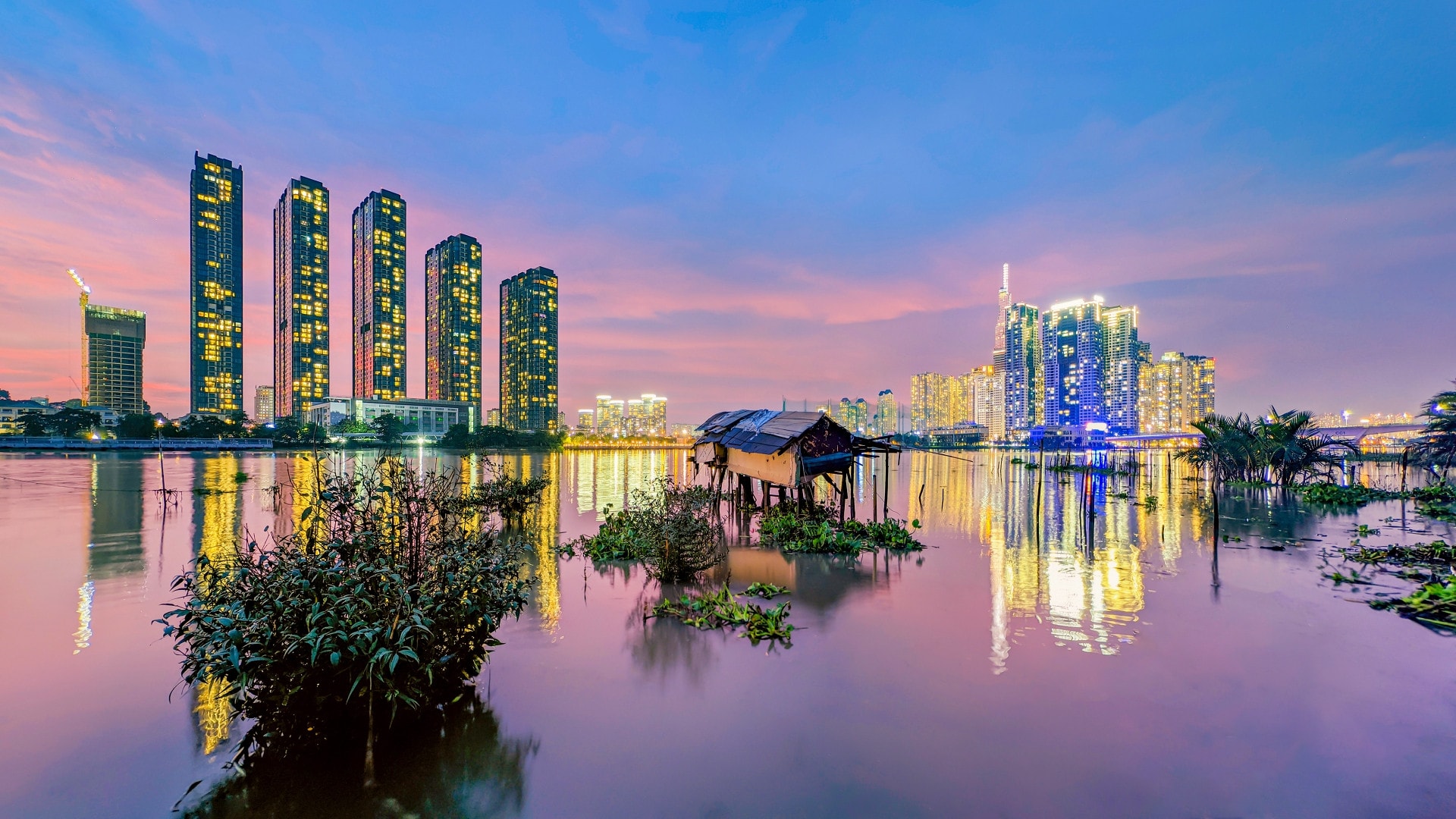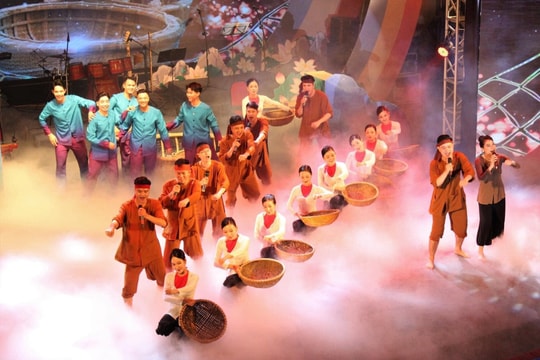Southern urban patriotic literature during the anti-American period
Since 1955, after the French colonialists accepted defeat and withdrew their troops from our country, the US imperialists jumped in to replace them in the South, establishing a regime opposed to the revolutionary government and the South was still under the control of that regime. At this stage, cultural invasion was “both the key means and the strategic goal of the US imperialists”, “conquering hearts and minds”, “destroying the green in the Vietnamese soul”, in which literature and art were powerful weapons.
Since 1955, after the French colonialists accepted defeat and withdrew After the army left our country, the US imperialists jumped in to replace them in the South, establishing a regime opposed to the revolutionary government and the South remained under the control of that regime. At this stage, cultural invasion was “both the key means and the strategic goal of the US imperialists”, “conquering hearts and minds”, “destroying the green in the Vietnamese soul”, in which literature and art were powerful weapons.
This point is completely new and even more profound than the old colonialism which only limited the study and dissemination of books, especially books that could awaken the soul, character and will of the Vietnamese people. Many writers with ideas opposing the revolutionary government were gathered under the banner of Southern urban literature and art to serve the political line of the pro-American regime.
However, in the enemy-occupied areas for twenty years, the flame of patriotism and revolutionary spirit of true Vietnamese people was not extinguished. And a large number of writers gathered under the patriotic and revolutionary flag of our Party, creating a literary front right in the heart of the Southern cities, against the current, opposing and not within the orbit of “new colonial literature”…
Since the 1950s, the South has witnessed the emergence and rapid growth of many young writers. These people were mainly students, although they had not yet made a voice in literature and art, but they were passionate about the traditional values of the nation, had knowledge and culture, and were aware of the value of struggle in their pens. Their fighting pens participated in all fields: poetry, prose, theory, criticism... with Tran Quang Long, Phong Son, Dong Trinh, Chinh Van, Vo Truong Chinh, Ly Chanh Trung, Tieu Dao Bao Cu, Yen Minh, Lu Phuong, Ky Son, Tran Trieu Luat...
Overcoming the fear of acts of terrorism and violence, there were times when patriotic writers from the South, of which the core force was the National Cultural Protection Front (1966), gathered in conferences. They even published their own magazine (Tin Van) and had their own publishing house (Do Chieu). Behind them, both materially and spiritually, was the strong and persistent support of the city's student movement, the guidance and support of revolutionary artists and Party cadres who were secretly operating in Saigon.
Like the literature of the whole country during the French colonial period, this literary trend had rich and diverse forms of activity. Progressive writers took full advantage of the public literary scene when conditions allowed. Under President Ngo Dinh Diem, they had their own press agency, Nhan Loai, and under President Nguyen Van Thieu, Tin Van. They could cooperate with other press agencies to promote their ideas and spirit to fight promptly and directly with the enemy, such as the cooperation of the Viet group of young writers with the Doi Dien newspaper of some Catholic intellectuals. Or like Vu Hanh, one of the most famous writers of the patriotic revolutionary literature of the South at that time, appeared quite regularly for a long time in Bach Khoa Magazine - a "not very progressive" magazine.
Like the Northern resistance literature, the Southern patriotic revolutionary literature at this time was considered by artists and writers to be the most effective propaganda weapon, so everything they wrote was the choice of the shortest path for their thoughts and perceptions to reach the minds and hearts of readers. First of all, in terms of genre. We know that, before each turning point of history, that is, before the transformation of reality, to approach the newly formed reality as quickly as possible, artists and writers often seek genres that are easy to write, easy to remember, with the main characteristics being short or rhyming. Therefore, the shock genres of Southern patriotic and revolutionary literature are, first of all, short stories, reports, memoirs and poems. In terms of content, depending on the political situation and each specific period of time, literature addresses different topics and themes with a consistent strategic orientation: thoroughly denying the neo-colonial regime, strongly condemning the gangs that invaded and sold the country, affirming the ambition of national liberation and unification, and calling for struggle.

Under Ngo Dinh Diem, writers avoided direct confrontation with the ruling government, but instead used allusions and distanced language by borrowing "world affairs" or writing about past topics. Readers can see this in the flexible, discreet voices of Vu Hanh, Vien Phuong, Ly Van Sam, Giang Nam, Le Vinh Hoa... The voice of struggle became stronger, more vibrant and more direct under Nguyen Van Thieu's reign, with a ruling model and a social atmosphere that was somehow more democratic. This was also the period when the revolutionary movement spread throughout the South. The voice condemning the rulers of this period rose even more strongly and passionately through long reports such as Dollar Power by Dung Tam, On the Streets of Saigon by Nam Dinh and Phan Chan...
And on the same topic, but the Southern literature that we are used to calling bourgeois, expresses the existential spirit, by describing a life of positive enjoyment, our writers see life as a process of degeneration, completely opposite to the spirit of building a fresh, healthy society for tomorrow that the revolution is aiming for. On the other side, the pen of struggle is directed towards the invaders. From the perspective of the Americans in the unjust war, the artists and writers exposed their nature of stealing the country, reflecting the resentment and humiliation that the people of the South are suffering under their political oppression. This is one of the verses describing the crimes of the enemy with the inspiration of denunciation and condemnation originating from a specific event:
American soldiers
Wear a helmet
Carrying a long gun
Wild animal heart
They shot at our homeland.
They fired heavily at My Lai.
They shot at the children.
They shoot into history
(My Lai, blood, tears and resentment, SHV)
Or call for and encourage patriotism by recreating a resilient history:
I want to give to people who love antiques
A sword of the Ly family is fierce.
A steadfast Cao Thang rifle
Offering the whole heart of the nation
I want to give to those who love literature
A Proclamation of Victory with fresh ink
Written with the blood of the Ming army in the past
A book teaching the essence of military strategy
The famous strategy of Bach Dang River
The more enemies, the more blood is spilled.
Two hundred thousand soldiers were left without a piece of armor.
(Growing Up Constantly – Chanh Su)
In general, the struggle of Southern literature in this period was a harmonious combination of anti-American and anti-local government voices, of two Southern literary regions: Liberation and temporary occupation. The efforts of literature and artists there at that time made an important contribution to the struggle to liberate the South and unify the country.


.jpg)
